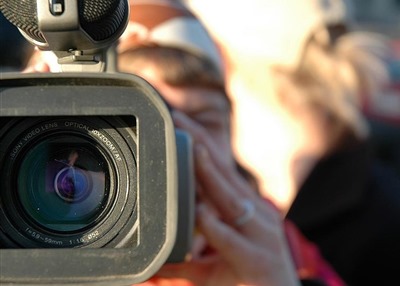
On 13 February 2014, towards the tail-end of the Aam Aadmi Party’s (AAP) short-lived first tenure in charge of Delhi, then-Delhi law minister Somnath Bharti wrote a 15-page letter to his party colleagues.
In line with the party’s manifesto promise, he proposed to make it obligatory for every court in Delhi to video record and broadcast its proceedings live, by getting the Delhi assembly to (regionally) amend the Code of Civil Procedure and the Code of Criminal Procedure (which states have amended in the past).
Bharti, though re-elected this time, lost his cabinet seat and the law ministry to the AAP’s Jitender Singh Tomar.
While the AAP's 2015 manifesto still contains the promise to introduce cameras in court, Tomar told Legally India that there was nothing in the party's current 70 point agenda on video recording and that the current priority of Delhi’s law ministry would be to start fast track courts and improve infrastructure.
Tomar declined to comment further about possible plans for video cameras.
Bharti, however, remained upbeat about the project. “The dialogue is yet to start,” he said. “I’m not part of the cabinet this time, so surely, we have to do a little more persuasion [of stakeholders]. But this will happen.”
Bharti is not the first in the political sphere to consider it. The Congress’ Kapil Sibal, when he was law minister in November 2013, said that the ministry’s advisory council unanimously decided “that court proceedings must be videographed and that the technology must be put in place now”, starting with trial courts.
Courts off record
It is far from certain whether Indian courts would happily support recording of proceedings.
One man who can testify to that more than most is Deepak Khosla, a 55-year-old former businessman who qualified as a lawyer in 2013.
Khosla estimates that he currently has around 75 writs and other cases that he is personally involved in as petitioner or respondent, many of which target reform of the judicial system. (In October 2014, he also began representing Somnath Bharti before a magistrate’s court in relation to the former minister’s allegedly “racist”, vigilante “midnight raid” of a house in his Khirki Extension constituency.)
But before all that, in 2009, Khosla had filed a writ in the Delhi high court seeking a declaration that he could audio record court proceedings.
Eventually, on 25 February 2011, Delhi high court Justice SN Dhingra took up the writ suo motu and referred it to a larger bench, noting that permitting petitioners to record their own audio carried the risk of tampering with recordings, which could then be released to the media or used in appeals to undermine the court.
However, Dhingra was sympathetic to Khosla’s cause, and said: “I consider that it is high time that the Court and State should consider introduction of authenticated audio/video recording of the proceedings in all Courts, more specifically in District Courts.”
“In my view audio and video recording shall help smooth functioning of the District Courts where the District Judges and Civil Judges work in adverse circumstances and do not have power of contempt. When they refer matters of contempt to the High Court, pleas are taken that incident had not happened or a manipulated version was put forward,” wrote Dhingra.
“This will also discipline not only the Judges who do not come to the Courts in time but will also discipline the advocates and litigants who many a times try to obtain order from the Court either by show of force or abusing more specifically when an advocate is an accused before the Court and entire Bar surrounds the Judge. I, therefore consider that it is high time that High Court should consider the introduction of such measures of audio/video recording in trial Courts as well in this Court.”
Dhingra might be in a minority among the Delhi judiciary with that view.
Khosla’s 2009 writ asking for the high court to tell the government to frame rules to allow audio recording, was dismissed by then-Chief Justice Dipak Misra and Justice Sanjiv Khanna on 9 August 2011, arguing that they could not compel the legislature to make a law.
Khosla is contesting that judgment, in part alleging that Khanna had pre-decided to resist audio recording after a full court meeting held on 14 May 2010 to “finalize the stand of this Court, in the matter”. Khosla obtained extracts from the meeting with a Right to Information (RTI) request [RTI reply, page 10].
According to the extract, the full court, except for justices Sanjay Kishan Kaul, S Ravindra Bhat and S Murlidhar who recused themselves, “decided to contest the matter on the judicial side”. While Justice Misra only joined the Delhi high court 10 days after that meeting on 24 May 2010, Khosla argued that Justice Khanna did not recuse himself, as he should have, according to the minutes.
Photo by Popperipopp
threads most popular
thread most upvoted
comment newest
first oldest
first
AAP promised - in writing ! - video recording of court proceedings.....this is cheating, and breach of trust. Pity ! Seems that AAP is cut from the same cloth as the other joker politicos.
And Kian....that 15 page document of Somnath Bharti you have referred to is not a "letter to his colleagues", but a copy of the file noting of the validly elected Minister for Law and Justice of the State of NCT of Delhi, reflecting the duly-taken decision of the State.
That decision hasn't been rolled back.
No doubt that is why video-recording of court proceedings is not on the 70-point Agenda of AAP, because it is a decision already taken in February 2014, whereas the 70-point Agenda only refers to issues / things yet to be done, on which formal decisions are yet to be taken.
More to follow....
threads most popular
thread most upvoted
comment newest
first oldest
first